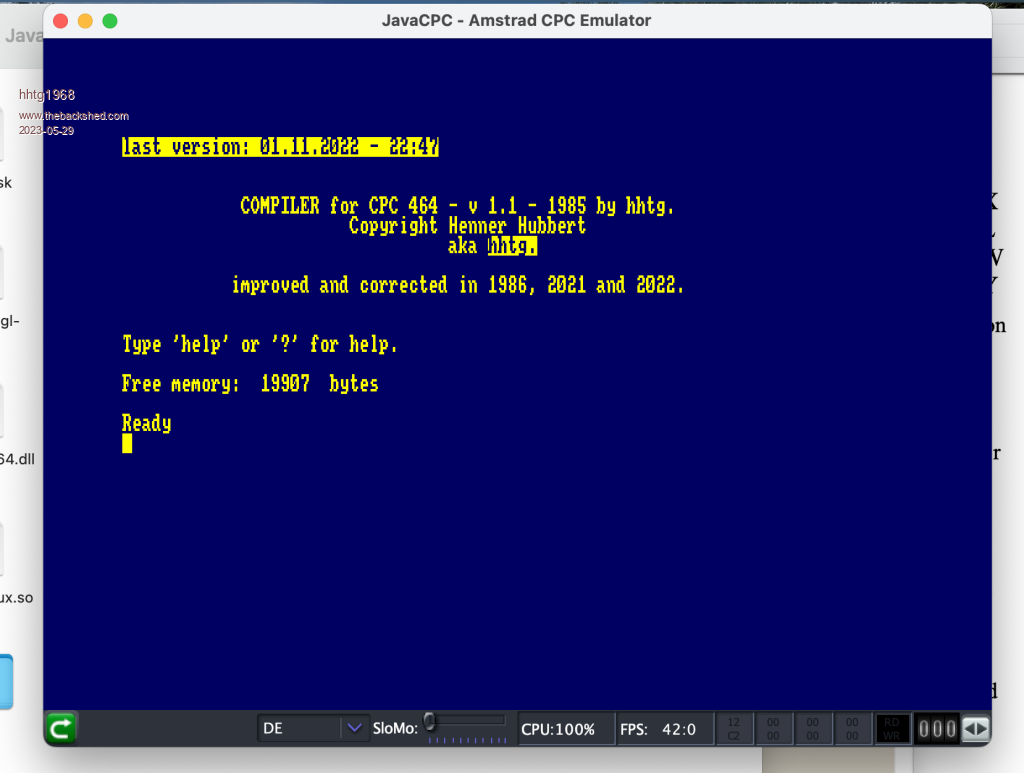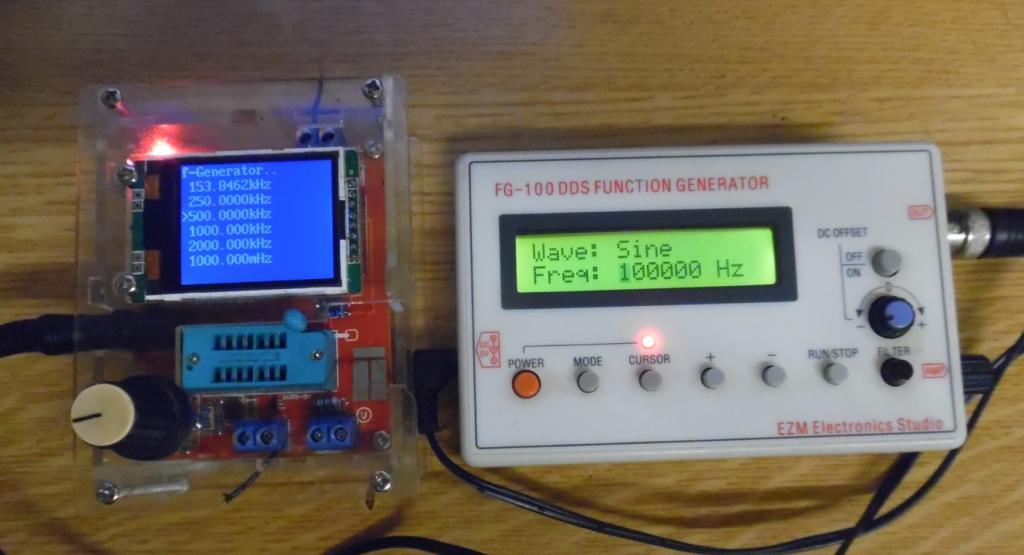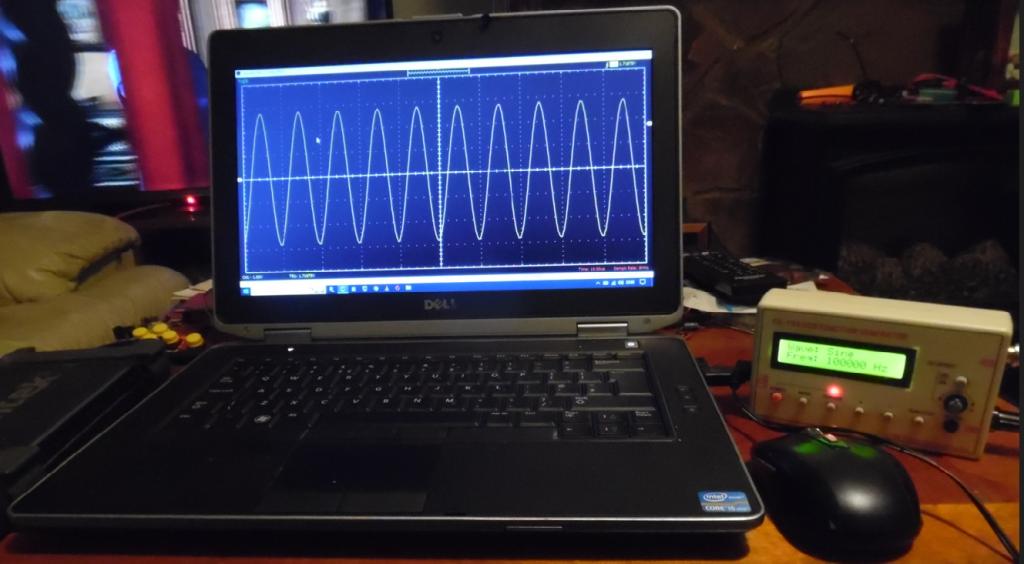
|

|
Forum Index : Microcontroller and PC projects : Let’s discuss Agon Light
| Author | Message | ||||
| Mixtel90 Guru Joined: 05/10/2019 Location: United KingdomPosts: 6800 |
Yeah, I can see all that. There is a serious limit on what a Pico can do with a display though. Even if you send it VT100 commands, what is it going to do with them? At the moment anyway you are still limited to 320x240 and 16 colours (Mode 1 is a special case) by the frame buffer. Getting rid of some of the RAM currently needed won't necessarily gain enough to enlarge the frame buffer by much (a lot of the current program stuff runs from flash). Whether you can get the CPU2/DMA/PIO system to handle something bigger is yet another question. By all means link two PicoMites together, but there is very little gain for a lot of complexity if the idea is to increase video capabilities IMHO. It would be easy enough to set up an experiment, I think. After all, the display side is a PicoMite VGA with something similar to a VT100 handler running. The other is a bog standard PicoMite. Mick Zilog Inside! nascom.info for Nascom & Gemini Preliminary MMBasic docs & my PCB designs |
||||
| thwill Guru Joined: 16/09/2019 Location: United KingdomPosts: 4044 |
The second Pico isn't a PicoMite, you write custom firmware for it to act as the "graphics/display" processor. Best wishes, Tom Game*Mite, CMM2 Welcome Tape, Creaky old text adventures |
||||
| Mixtel90 Guru Joined: 05/10/2019 Location: United KingdomPosts: 6800 |
Correct (unless it's for the experiment I mentioned). However, the RAM limitation doesn't go away. You still have 264Kb and some of that will be needed for the control system, whatever that proves to be (for buffers etc. that can't use flash). You can't use flash for a frame buffer either and without a frame buffer your graphic options are limited! The RP2040 doesn't make a very good GPU. 640x480 with 64 colours leaving you with 39Kb of RAM to do everything else in. It may be doable in C, but such a display isn't going to set the world alight when a minimum spec RPi can do so much more. On an entirely different subject, have a look at the Hantek 6022BL oscilloscope, Tom. My brother has one. They are very basic, but work remarkably well for audio frequencies (they are 20MHz / 48MS/s). The BL version includes a very crude logic analyser. There is a BE version that doesn't and costs a little less. Available from Amazon and AliExpress (about 55UKP from there incl. carriage). Don't need much bench space either. Edited 2023-05-28 23:43 by Mixtel90 Mick Zilog Inside! nascom.info for Nascom & Gemini Preliminary MMBasic docs & my PCB designs |
||||
| hhtg1968 Senior Member Joined: 25/05/2023 Location: GermanyPosts: 123 |
about 10 years ago i had the opinion the ez80 cpu is great. 50 mhz and compatible with the z80. about 40 years ago the z80 was my home. i loved to program in z80 assembler. sometimes i take out my old amstrad cpc and continue to program my own compiler from 1985! on today i know the hexnumbers for the commands in my head. the compiled code was about 44x faster than the original basic. i have an very accurate emulator on my mac and buitlt a disc-emulator with an PIC chip for the disc drive, so i can use my old software on the emulator! but the picomite has a 100x better conzept than the agon light. and the PRICE (in europe about 4-6 euro) is so low! only an single atmel attiny85 (today microchip) is cheaper (but 8kb!)(0,90 Euro)... |
||||
| Mixtel90 Guru Joined: 05/10/2019 Location: United KingdomPosts: 6800 |
The EZ80 is a full-wave rectifier valve with a 6.3V heater and a B9A base, as all us oldies know. It's not one of these new-fangled imposter things with a lot of legs. Nine is enough for almost anyone! :) Mick Zilog Inside! nascom.info for Nascom & Gemini Preliminary MMBasic docs & my PCB designs |
||||
| Volhout Guru Joined: 05/03/2018 Location: NetherlandsPosts: 4251 |
I know EZ80 as a 6V4... Volhout. PicomiteVGA PETSCII ROBOTS |
||||
| stanleyella Guru Joined: 25/06/2022 Location: United KingdomPosts: 2129 |
Hantek 6022BL. I have the BE and open source software and it's ok.. for the price. it will do a bit more than just audio :) I have a saleae logic tester I never used https://www.aliexpress.com/item/1005004615791517.html? I had a go at a "scope" with picomite , just samples to an array then display and that would show results for audio ... 20-20000Hz, audio spectrum for a dog may be. I think I'll revisit that idea, post if interesting, software triggering. Done before probably. |
||||
| Mixtel90 Guru Joined: 05/10/2019 Location: United KingdomPosts: 6800 |
I have a similar logic analyzer (but 16-bit). I've used it several times - not a bad bit of kit. Great for debugging serial comms stuff. I felt guilty using the Saleae software and tried a public domain package but it was simply too limited and rather clunky to use. Just because a 'scope is "20MHz" it doesn't mean that it is useful or even usable up to that frequency. :) I like that little Hantek though, especially for the price. I couldn't test the frequency response as I've no oscillator that goes past 20khZ! I suspect it will be ok up to a couple of MHz. Their software is a bit "toytown" until you start delving into it. It has some silly problems though = no X-shift and no magnification of a static trace. No panning across a static trace either. Sync seems to be a bit hit and miss at the lower frequencies. I downloaded Open Hantek but couldn't get it to run. :( Edited 2023-05-29 05:52 by Mixtel90 Mick Zilog Inside! nascom.info for Nascom & Gemini Preliminary MMBasic docs & my PCB designs |
||||
| hhtg1968 Senior Member Joined: 25/05/2023 Location: GermanyPosts: 123 |
i think coding for the z80 is coll in these days... but coding the picomite ist better. here is a foto from my compiler from 1985! i have improved it last year...  |
||||
| hhtg1968 Senior Member Joined: 25/05/2023 Location: GermanyPosts: 123 |
i meant "cool" not "coll", sorry. i can post a video to show compiling and increasing speed... |
||||
| stanleyella Guru Joined: 25/06/2022 Location: United KingdomPosts: 2129 |
I got some function gens,  ones's old and the other old too but it's a component tester and pwm and freq counter. nice tool. I got open hantek 64bit win10 on pc and laptop.. solves hantek software probs. |
||||
| stanleyella Guru Joined: 25/06/2022 Location: United KingdomPosts: 2129 |
100 KHz  |
||||
| stanleyella Guru Joined: 25/06/2022 Location: United KingdomPosts: 2129 |
Hi @hhtg1968 I never had a c64 but I had a spectrum compiler. It was great but no floating point, still great at the time and it was free as if you got a game written with it then with a command you could compile your own code. https://spectrumcomputing.co.uk/alt/2879/ZX-Spectrum/Light_Cycle |
||||
| Plasmamac Guru Joined: 31/01/2019 Location: GermanyPosts: 554 |
hi hhtg1968 maybe u write a mmbasic compiler  gtx Plasma |
||||
Quazee137 Guru Joined: 07/08/2016 Location: United StatesPosts: 572 |
RP2040 Doom: DOOM1 Demo/Gameplay on a Raspberry Pi Pico    Quazee137 |
||||
| Hawk Senior Member Joined: 15/07/2021 Location: AustraliaPosts: 141 |
I've tried to resist throwing in my 2c worth...but failed. I love tinkering with all (OK...most) of my old computers, but I have been on the lookout for quite a while for a "modern" equivalent. I was never into assembly language back in the day. I could never afford the assembler, and with just a unreliable cassette player for storage, development was very painful. So for quite a few years now, I've been looking for a modern "boot-to-BASIC" machine that had some limitations (limitations bring out creativity) but had a development environment that was enjoyable to use. I was also after "cheap"...a relative term, but I had always imagined running some sort of holiday workshop where kids could come along, make their own "boot-to-BASIC" computer, and then take it home with them and continue to experiment with it. I've built Rob Cai's dual Arduino Nano Tiny BASIC computer, but it was WAY too limited in the language. I thought it would have been better implemented using STM32 Blue Pills. Then I discovered Fabrizio's FabGL and the cheap hardware that it ran on. The only problem, was that it lacked a "modern" BASIC. Paul Robson came really close with his "Eris" BASIC, however his implementation of BASIC programmed in his own virtual machine with it's own assembly language meant that it was difficult for anyone else to help with, and he moved onto other projects. He's now been helping out with the software on the Foenix. Uli's Engine BASIC on the Allwinner H3 processor is very close to perfect, and the hardware is "cheap" (a relative term) when compared to the price that the Commander X16 is going to be released at, more akin to the Argon. And certainly cheaper than even to most common retro/vintage machine. However, it cannot be interfaced with, and it certainly can't be built by the average hobbiest. So now I have ended up at the PicoMiteVGA. Unlike many here, my interest is in using it as a stand-alone (mostly) machine that I can develop on/for and maybe interface to. It's by no means perfect, (no insult intended), but Peter and Geoff are very responsive to bug fixes and (where possible) feature requests. The very active community here is very helpful when I get stuck. And I feel like I can make small contributions to the community. As mentioned before, the PicoMiteVGA has it's limitations, and sometimes that can be frustrating, but limitations is what brings out creativity. Regarding the Argon, I have programmed in BBC BASIC on my Amstrad NC100, and I found it a very good language to program in. It offers the more advanced constructs than early BASICs, but is not as modern as MMBasic. I was keeping an eye on the porting of BBC BASIC to the FabGL platform. That would almost have suited my needs. Anyway, I've waffled on for long enough. I'm not sure you got 2c worth but eh...what do you want for nothin'. Hawk |
||||
| Mixtel90 Guru Joined: 05/10/2019 Location: United KingdomPosts: 6800 |
Oh yes...... :) At the moment I have, on the table, a RP2040-Zero running at 378MHz with PicoMite firmware connected to a ST7789 240x240 colour LCD display, pushbutton and rotary encoder. An output pin goes, via a simple RC filter, to an oscilloscope displaying a dirty triangle wave. This is playing at its finest. :) Oh, and got OpenHantek running too now. :) Edited 2023-05-29 19:48 by Mixtel90 Mick Zilog Inside! nascom.info for Nascom & Gemini Preliminary MMBasic docs & my PCB designs |
||||
| hhtg1968 Senior Member Joined: 25/05/2023 Location: GermanyPosts: 123 |
hi plasmamac: unfortunatly i do not know the arm-assembler. i try to understand the c-sub in mmbasic for getting more speed. |
||||
| stanleyella Guru Joined: 25/06/2022 Location: United KingdomPosts: 2129 |
The idea of teaching Basic to young people as a programming language seems impractical today as most code would be c or c+. My 8 year old grandson is starting to learn java but has created a web page and a simple game called zombie in something called scrtch ... not scratch, so my son said. He's learning java next. He's 8. Do we use Basic because we learnt it in the 80's? I do. If mmbasic ran on 8bit pics it would be like picaxe. The same pic say a 18f25k22, which picaxe called a x2, when programmed with gcbasic, which is compiled, ran 10 times? faster. Mmbasic is using the 32bit rpi for it's interpreted basic speed. It works and is the best for price option for hobbyists and a stand alone home made device. I wish I could write a compiler. Some I've used are 2 pass and the idea how it works. Gcbasic creates an .asm file when you flash hex and the assembler produced is weird, seems to use subs as it has to work on as many pics and atmega, which is microchip anyway now, as possible. |
||||
| JohnS Guru Joined: 18/11/2011 Location: United KingdomPosts: 3805 |
What's not fast enough? John |
||||